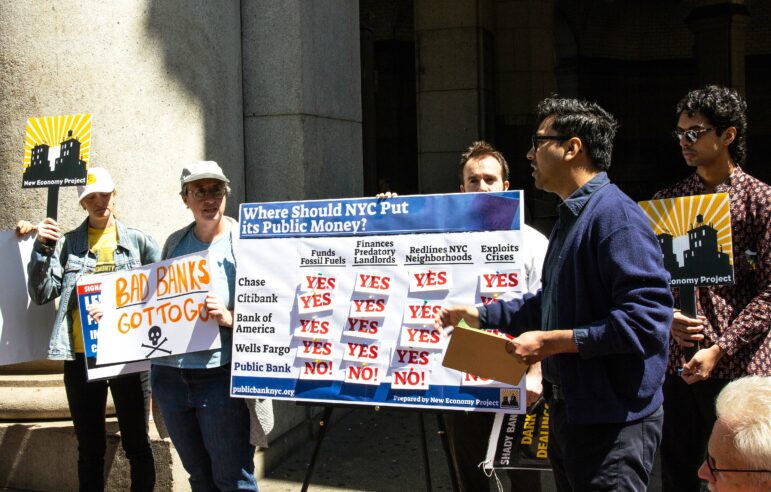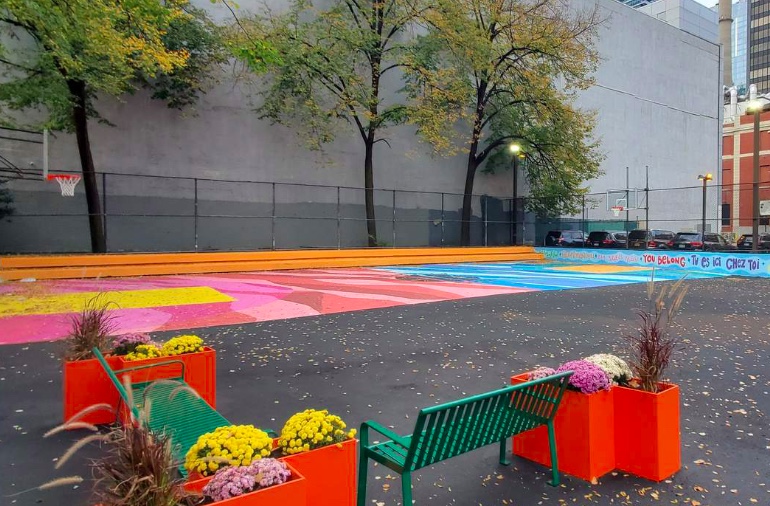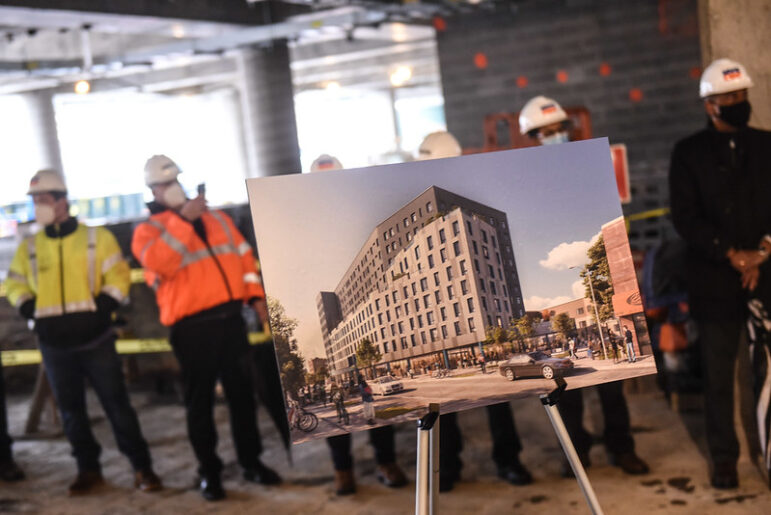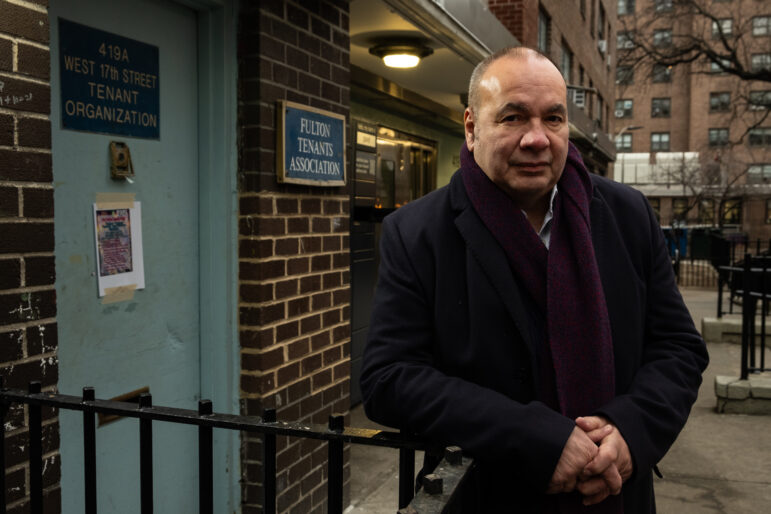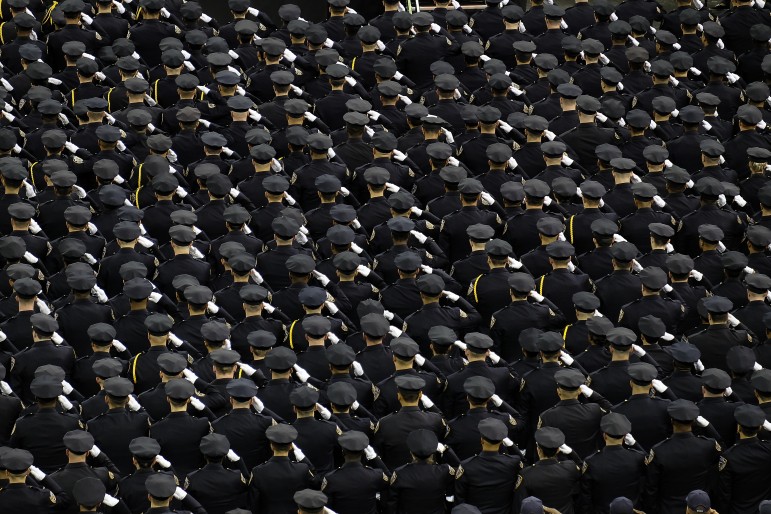
Tens of thousands of protestors have been in the streets for weeks since George Floyd’s murder, demanding that we “defund the police.” For the first time in history, the New York City Council promised to significantly cut the NYPD budget, by an eye-popping $1 billion. Hundreds camped out for a week in front of City Hall to demand the cut – and now a new budget has arrived with minimal cuts to the NYPD, disappointing everyone.
But why has defunding become a goal for organizers and advocates? Couldn’t we have solved this with better police accountability measures, like the repeal of 50-a and other bills recently signed by Governor Cuomo? Absolutely not. Some police reforms have positive results, but the problem isn’t a few bad apples – it’s that violence and mistreatment are fundamental parts of how police operate.
As part of a small team studying low-level arrests in New York City at CUNY’s Public Science Project, I’ve spent many hours talking with people who were stopped and arrested for things like walking through a park after hours, possessing a small amount of marijuana, or jumping the subway turnstile because they couldn’t afford the fare. These violations are rarely enforced in some neighborhoods while, in other ones, New Yorkers are regularly targeted for the same behavior. Both my professional and personal experiences have taught me that police stop certain people much more than others (regardless of who’s committing “crimes”), and – intentionally or not – work hard to create an environment of fear. Understanding this is necessary to grasp why so many people are pushing for systemic change.
The mostly Black and Latino New Yorkers we interviewed – more than 200 people, most of whom we approached randomly outside of city courthouses – had experienced violence and humiliation over the lowest of charges: Darius says he was arrested for trespassing while waiting for a friend at a Bronx subway station, then beaten and left bruised for asking why he was being arrested. X – a few years on from a high school marijuana arrest that led to four court visits and no conviction – reports he was pushed up against a wall and searched by undercover officers while walking to his college in Brooklyn. As an officer dumped his backpack out on the sidewalk, X argued that he hadn’t consented to a search; the officer replied, “N_____s don’t have rights.”
After hanging out with a friend on the roof of her Brooklyn apartment building, Tiffany–a young Black woman–was accused of trespassing. She says several officers aimed their firearms at her, and one of them sexually assaulted her. While this happened, his colleagues – like Derek Chauvin’s in Minneapolis – looked on silently and refused to intervene. While Tiffany was held at the police precinct and transported to the Manhattan jail, she says, the officer who committed the sexual assault laughed in her face and threatened her, remarking that he knew where she lived. Her complaint to the precinct captain bore no result. Afterward, she felt nervous around male friends and family members, and skipped several weeks of her college classes, nearly failing some of them. Since then, she crosses the street or takes different routes to avoid police whenever possible.
While encounters like these are absolutely harmful on their own, some individuals we interviewed had been stopped by police as many as 80 to 100 times, even while still in their 20s. The current protests were set off by a horrific police murder, but violent policing is an routine experience for many New Yorkers of color, and the effects are enormous: people lose time and money, get locked up for parole violations, feel afraid to go outside or pass by police, and even develop mental health issues as a result of low-level police encounters and arrests. Meanwhile, this harmful, racialized system costs $6 billion per year and can’t even handle serious offenses well.
What does it mean to be policed? To be stopped, ticketed, and arrested – differently, violently, constantly? As a young Black woman at a Manhattan rally last month put it to The Gothamist, “Racism isn’t a black person’s problem. It’s a white person’s problem to correct it. But we, we have to carry it in our bodies.” We found the same by asking the New Yorkers we interviewed how they feel when they see police walking down the street: 76 percent expressed negative feelings toward and opinions of police, including widespread fear, mistrust, anger, and anxiety. People described their stomachs knotting up – hoping they wouldn’t be treated like “a piece of trash” or get “shot for nothing” – and panicking because of past mistreatment. As one person put it, “I believe they’re destroying people’s lives.”
 CityViews are readers’ opinions, not those of City Limits. Add your voice today!
CityViews are readers’ opinions, not those of City Limits. Add your voice today!
Routine violence and collateral consequences are an inherent part of low-level enforcement in New York City and around the country – violence that won’t be alleviated without shifting resources away from police. Yet the consensus on the finalized budget, passed on June 30, is that the cuts were largely illusory – according to the city’s own Independent Budget Office, “the ‘smoke and mirror’ and ‘sleight of hand’ metaphors are basically apt.” Over 40 percent of the so-called “cut” consists of police functions being shifted to other city departments, and the majority of the amount actually cut ($484 million) relies on overtime caps that the city has never successfully enforced before. The only clear – but still partial – victory is eliminating two of the four NPYD classes for the fiscal year, reducing the total number of officers by about 3 percent.
However, these last weeks can still serve a transformative role in the fight for defunding. New Yorkers can build on this precedent – a small cut and a reduced “portfolio” brought about by massive pressure from advocates, constituents, and protestors – in 2021, when Mayor De Blasio will be flailing through his final year and City Council Speaker Corey Johnson will be a leading candidate to replace him. Even with occasional spikes in violence, current crime rates are at historic lows, and an actual billion dollar cut would simply bring us back to the budget that the current administration inherited from Bloomberg in 2014. The same progressive forces that elected Alexandria Ocasio-Cortez and recently won multiple state and national primaries can hold candidates like Johnson accountable to significantly cutting the NYPD budget next June and refusing campaign money from the police unions – no matter what.
The problem at hand isn’t one of legitimacy that can be fixed with neighborhood policing, or any other police reform flavor of the week. It’s that people can understand from their own experiences what policing is: a force that terrorizes their communities. Ultimately, defunding the police and reinvesting in needs like public health, stable housing, and youth development is both our best hope for reducing aggressive, racialized policing and a step toward addressing community violence and other significant problems we face – problems that the police were never meant to fix, and don’t spend their time addressing anyway.
Gaurav Jashnani is a researcher, educator, and Ph.D. candidate in Critical Social Psychology at the City University of New York.


